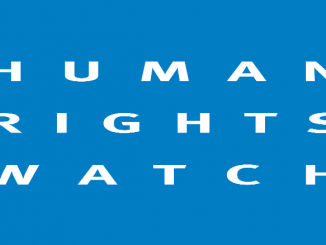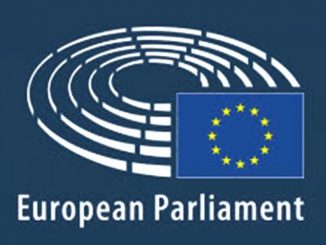
Privacy International, human rights watchdog, focused on privacy intrusions by governments and businesses, said that subsequent to their letter of January 2017 to the Italian export authorities which expressed their belief that the export of an internet network surveillance system to Egypt poses, a clear risk to human rights, the Ministry of Economic Development has confirmed in a press release that the authorization has been revoked.
While the decision is to be welcomed by PI, a feature documentary broadcast on Al-Jazeera shows the severity of the surveillance industry’s threat to privacy and other human rights and the urgent need for its exposure, said Privacy International.
It also added,”The documentary, relying on undercover footage, shows a number of Italian and international surveillance company representatives willing to export surveillance equipment with little regard to human rights.”
As a result, PI, CILD, and Hermes have written again to the Italian Ministry that they have welcomed the Ministry’s decision regarding Egypt, and the agency’s transparency on the issue, as well as other positive steps the Ministry has taken regarding the export of surveillance technology.
PI said they have also urgently requested that the Ministry to release detailed information about historical exports of surveillance technology that clarifies what licenses have been approved and denied.
Transparency on export licensing is of fundamental importance to holding the surveillance industry and government decisions around it to account.
“Without knowing what licenses have been approved or denied, it is impossible for the public and Italian parliament to scrutinize government decision making. It is therefore imperative that MISE makes this data publicly available,” said PI.
Italy’s obligation to provide such safeguards over the industry were recently confirmed by UN Human Rights Committee, independent UN experts responsible for monitoring states’ obligations under the International Covenant on Civil and Political Rights.
Last month, during the review of Italy, the Committee expressed its concerns “about allegations that companies based in the State party have been providing on-line surveillance equipment to foreign governments with a record of serious human rights violations” and recommended that the Italian authorities “take measures to ensure that all corporations under its jurisdiction, in particular technology corporations, respect human rights standards when engaging in operations abroad.”
In 2016, Privacy International, the Italian Coalition for Civil Rights and Freedoms (CILD), and the Hermes Center for Transparency and Digital Human Rights have written to the Italian regulatory authorities seeking urgent assurances and action after reports that “a surveillance company has been allowed to export an internet surveillance system to a shadowy government agency in Egypt.”
La Stampa, an Italian newspaper, has also published a report in 2016 stating that Area SpA,an Italian company for surveillance technology, had been granted an export license by the Italian export control authorities to export internet surveillance equipment to the Technical Research Department (TRD) in Egypt.
The surveillance system reportedly being exported can collect, store, and analyse information about large numbers of people, “often without any regard to whether they are legally suspected of wrongdoing,” according to PI.
“In countries with weak rule of law and under the control of an authoritarian government, these systems are wielded to violate the right to privacy, and pose a serious threat to privacy and other human rights,”said the human rights watchdog.
The reported importer of the surveillance system, the TRD, is a little known and shadowy branch of the Egyptian intelligence apparatus.
PI has previously published a report on the agency, drawing a link between the purchase of surveillance technologies by the agency and a pattern of political repression and curtailment of press freedoms.
In their letter, which has been sent to the Ministero dello Sviluppo Economico (MISE) as well as key committees and parliamentarians, as PI argued that “the export of an IP network communications surveillance system to the TRD poses a clear risk to human rights.”
Since al-Sisi came to power in a military coup against Egypt’s first democratically elected President Mohamed Morsi 2013, the Egyptian authorities launched a massive crackdown against political opposition, journalists, lawyers and human rights organizations.
UN human rights independent expert bodies, including the UN Special Rapporteurs on freedom of expression, freedom of peaceful assembly and association, and human rights defenders and the UN High Commissioner for Human Rights have expressed serious concern regarding the deterioration of human rights in Egypt.
Moreover, EU Parliament passed a resolution on 10 March 2016 calling for “the suspension of any form of security cooperation with Egyptian authorities” considering the recent backdrop of human rights violations, including torture, deaths in custody and enforced disappearances across the country, while the Council of the EU in 2013 stated that “Member States also agreed to suspend export licenses to Egypt of any equipment which might be used for internal repression.”
However, despite human rights violations in the country several reports stated that many European countries continue to export weapons and surveillance equipment to al-Sisi military rule.
Reports have also stated that Italy has allowed the export to go ahead also comes as the investigation into the torture and murder of Italian student Giulio Regeni was still under way In Egypt, where police recently admitted to spying on Regeni prior to his murder.



